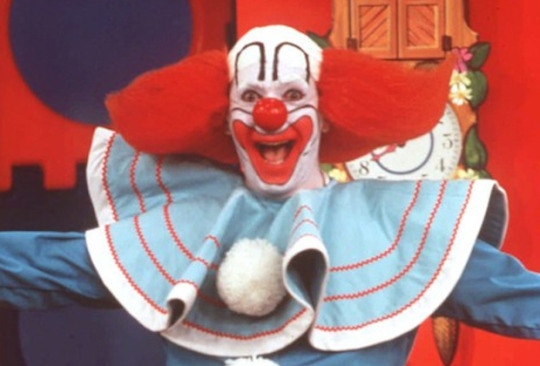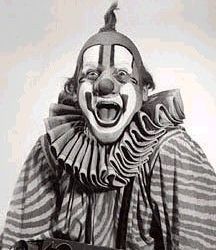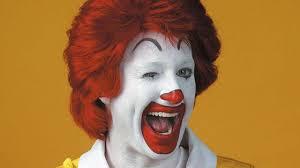#I'm uhh not looking forward to the next chapter tbh
Explore tagged Tumblr posts
Note
Wait I just realized you're the author of one of my favorite tobiizu fanfics ever (Ghost of July)!!! I've been thinking about what to comment on it for ages but I haven't yet because I couldn't find the words to describe how much I love that fic!
It's so incredible! Especially love the dream where Tobirama and Izuna are sitting under a tree-! Actually made me cry🥹 And the end too (Izuna's so cheeky, he actually had me believing him for a sec lol). I love the mood board at the beginning too, it looks so cool!🩷
Been following star-crossed recently too (just caught up in fact). I'm really looking forward to see how it progresses! Especially Izuna's neverending curiousity and how long Tobirama will be able to resist him🤭 Thank you so much for sharing your stories! I love them!💖💞💗

Uhm uhh uhm yeah I'm calm... Calm..... Yeah..........
THANK YOU...
It's been YEARS since I wrote that, I'm a bit scared to look at it tbh LOL but I'm glad you like it 😭💖 it was my first venture into sci-fi (ish) stuff which I really wanna explore more at some point hhh
WELL. If you must know. He resists for one more chapter. So uhm until next week I guess lol
:))))))
THANK YOU FOR READING THEM I LOVE YOU 💓💓💓
4 notes
·
View notes
Text
It Read-through Chapters One and Two, “After the Flood” and “After the Festival”
Starting off strong with child death! Yaaaay!
Warning for gore, death, homophobia, hate crimes, sewer clowns, and juvenile humor.
Explanation of what I’m doing here.
The first chapter is pretty much exactly like the first part of the 2017 movie, with a few very key differences.
For one, Bill is a few years younger here than he is in the first movie. In the movie the kids are around thirteen or so and they make note of this a couple times. In this Bill is only ten, therefore he’s eleven for the rest of the child half of the novel. Georgie is still only six.
For another, when Pennywise attacks Georgie he doesn’t drag Georgie into the sewers, and the neighbors respond to his screams almost immediately. It’s outright stated that forty-five seconds after Georgie’s first scream a man named Dave Gardener finds Georgie’s body, already dead, arm torn from its socket. People run outside when they hear the scream, they witness Georgie by the storm drain, they know of the attack. In the movie he’s “gone missing”, largely presumed dead, but here Bill and his family know from the outset that Georgie is dead and died violently at that. There is a mention by King that the town tends to get through terrible events and then pretend they never happened in order to get over them, and I think in the film they made this more overt by having the few neighbors around ignore what happens to Georgie.
I feel like for the sake of the liveblog I should go over what happens in the book for the unaware, but it almost feels superfluous for this first chapter. Everyone knows Georgie dies at the hands of Pennywise, at the claws of It. Even the book lets it slip very early on that Georgie is slated for death, only a few paragraphs in.
Let’s rewind and properly explain. The book begins with George Denbrough running after a newspaper boat in the rain. George, or Georgie as he is affectionately called, is the younger brother of Bill Denbrough, one of our main characters, if not the leading man. Bill is sick with the flu, so he can’t go and play with Georgie in the rain, but he builds the kid a paper boat all the same, and seals it with paraffin wax to keep it watertight. A lot of the first chapter is devoted to two things: showing the bond Bill and his brother share, and showing that Georgie is already somewhat aware of It’s presence.
Bill sends Georgie down to the cellar to get the wax, and Georgie goes, but with extreme trepidation. He pictures monsters waiting to snatch him up in the cellar, and King here goes in depth into the smell of the cellar, a smell of “dirt and wet and long-gone vegetables”, the stink of rot, which is the smell of the monster, “the smell of It, crouched and lurking and ready to spring. A creature which would eat anything but which was especially hungry for boymeat.”
Yep. “Boymeat”. Right up there with “manflesh” in terms of descriptive vocabulary.
But basically, on some level, Georgie knows there’s something lurking in the dark for him, and he knows it’s a childish fear but he can’t quite shake his instinct.
Sidenote: there’s a reference to the Turtle fairly early on! Georgie finds a flat can of Turtle wax, and stares at the logo for a good thirty seconds. Which, by the way, probably looked like this:

Anyways, Georgie finds the paraffin wax and runs up the stairs, fearing that something lurking in the dark will grab him by his shirttail and yank him down, but he escapes and goes to give the wax to Bill.
Just a personal note here, when I initially tried to read this book some ten years ago I rolled my eyes at the conversation between the two brothers, which I remember distinctly being about buttholes, who was the biggest butthole, etc. I mean, they’re kids, it’s juvenile humor, what ya gonna do. The version I have downloaded here has the kids calling each other “a-holes”. So now I have to wonder if my version got censored somehow. Anyways. Nothing to inspire confidence in the rest of the novel like a conversation about who’s the biggest asshole between kids.
The brothers do have an oddly tender moment, which they both note is out of character for them, with Georgie kissing Bill’s cheek goodbye and Bill telling him to be careful. It seems like they know instinctively that they’re never going to see each other again.
Georgie runs out to play with his boat, and he chases it happily through the street until it unfortunately goes down a storm drain. Georgie tries to see if he can get it, but only sees yellow eyes staring back, until said eyes solidify as a clown. Georgie describes the clown as a cross between Bozo the Clown and Clarabell from Howdy Doody (both, for the record, are the most terrifying clowns I’ve ever seen, dear lord), but King notes that if Georgie “had been inhabiting a later year” he would have thought of Ronald McDonald first.
Just real quick gonna throw these nightmares up on screen for y’all:



Thanks, I hate it.
Here Pennywise introduces himself as Mr Bob Gray, also known as Pennywise the Dancing Clown, so right off the bat there’s some differences. Georgie asks himself how he could have seen yellow eyes when Pennywise’s eyes are a “bright, dancing blue” like his mother’s or Bill’s eyes.
Like the 2017 movie, Pennywise says the storm blew him and the circus into the sewer, and asks Georgie if he can smell the circus. Georgie can indeed, but he does notice the cellar smell lurking underneath, the smell of wet and rot.
But he ignores it.
Instead the clown offers him a balloon and Georgie asks “do they float?”
And the second he reaches his hand out to grab a balloon, Pennywise latches on, Georgie screams, and knows no more.
“They float,” it growled, “they float, Georgie, and when you’re down here with me, you’ll float, too—”
It’s noted that Georgie watches the clown’s face change, and what he sees destroys his sanity “in one clawing stroke”.
So really it’s a good thing that he dies a few moments later after It wrenches his arm off.
Again, Georgie’s body is found within the minute by a neighbor, and other neighbors run over to see what’s going on.
The chapter ends with a description of the paper boat floating through the sewers of Derry, as Bill’s family is delivered the news and his mother is sedated for shock in the ER, and “perhaps it reached the sea, and sails there forever, like a magic boat in a fairytale”.
Sweet sentiment. I’m getting all choked up over here. 🙄
So I figured I’d read on to the next chapter, seeing as the first chapter is so short and so well known.
God, I wished I had left it at one chapter.
The next chapter is told through a series of interviews with the witness and suspects to the case of the murder of Adrian Mellon.
It’s a fucking shitshow of a chapter.
It is DEEPLY homophobic. Every word of it.
This is how we’re introduced to Don Hagarty, partner to Adrian and key witness to his murder: “This man—if you want to call him a man—was wearing lipstick and satin pants so tight you could almost read the wrinkles in his cock.”
COME ON, STEPHEN.
Now. I know very very well that this book was published in 1986 and America was not kind to queer people in the eighties. I know that King was capturing that homophobia, not necessarily homophobic himself, and that his viewpoints have probably changed.
That said, reading this chapter was like a punch in the stomach every few sentences. The cops who interrogate the men responsible for the hate crime against Adrian make it clear that they are both disgusted by the attackers and deeply homophobic themselves. They all say at some point “I don’t like fairies, I don’t care for queers, they’re hardly men” in varying forms of intensity.
I honestly think I blacked this chapter out when I was seventeen, I don’t remember it being like this. Or maybe I didn’t care so much a decade ago, closeted and repressed, and that’s a scary realization. That your own internalized homophobia might have been so pervasive that you don’t see it in others. That it sounds reasonable when a supposedly sympathetic character says he hopes the murdering homophobes get locked up, prison raped, and get AIDS.
Sigh.
To sum up: Adrian Mellon is attacked while out with his boyfriend, Don. A group of young men, having been teased by Adrian at the Canal Days festival (though Adrian here makes a blowjob joke, not a shitty haircut joke--he’s too good for this book really), claim that they attacked out of “civic pride” because Adrian was wearing a “I ❤️ Derry” hat. One of the attackers tells Don to get out of there, and he screams for help. The attackers push Adrian over the side of the Kissing Bridge. The attacker who saves Don, Chris, sees Pennywise, and so does Don a little bit later, and they tell the cops that interrogate them. The cops dismiss the clown, at first ostensibly because the witnesses are hysterical, but then later in the chapter it’s revealed that the police don’t want the attacker’s lawyers jumping on the clown thing to prove their clients’ innocence. So Pennywise, even having been seen by two witnesses, is left off the record entirely.
King also reveals the deeply, deeply homophobic sentiment in the town, the violent anti-gay graffiti all over public property, at the Kissing Bridge or in the public park, the people in the town outright ignoring the attack as it’s happening, the fact that the one gay bar in town is home to some very fearful people who just want to keep their heads down.
So yes, you can extrapolate that the homophobic stuff expressed in the book is to show that Derry is a hateful place where fear festers and so forth...
But King also goes out of his way to emasculate Don Hagarty and Adrian Mellon every chance he gets, effusing about the dramatic makeup they wear, the nail polish, the bright outfits, the campy attitudes. Adrian is described as five-foot-five and slight. Don is described as shrill and dramatic (his BOYFRIEND was just BRUTALLY MURDERED). Meanwhile the homophobes are described as looking like Bruce Springsteen. Like.
I really feel for Don, I do, despite the book’s best attempts to make him a walking caricature, a huge gay joke. He says Derry’s like “a dead strumpet with maggots squirming out of her cooze”. He calls Derry a sewer. He’s right on both counts.
Well. On that cheerful note, time to wrap this read-through up! Tune in next time for our introduction to Stan (and probably the last time we’ll see grown-up Stan :D).
Bye for now.
#IT#It (book)#It (novel)#Stephen King's IT#Stephen King#IT Readthrough#I'm uhh not looking forward to the next chapter tbh#I saw the title and I know what's coming and it's not pretty
5 notes
·
View notes